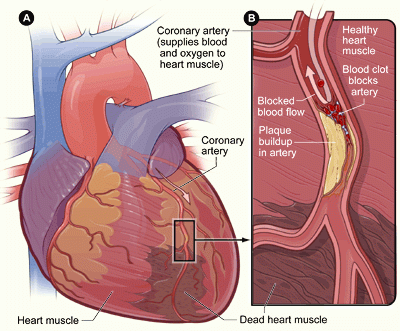Heart Attack Signs You Need To Recognize To Save Your Life: Common And Uncommon Symptoms

Chest pain could be minor and temporary, but it may also be a heart attack. But how do you tell the difference between the two?
The American College of Emergency Physicians explains that chest pain symptoms should always be taken seriously, and people should rely on doctors to diagnose them rather than trying to do it themselves. However, you can still be aware of the signs of a heart attack. That group lists the most common symptoms as “uncomfortable pressure, fullness, squeezing, or pain in the center of the chest that lasts more than a few minutes, or goes away and comes back,” as well as pain in the upper body, lightheadedness, fainting, sweating, nausea and shortness of breath. Women are more likely to experience the shortness of breath, nausea and back or jaw pain than men are.
Read: Your Heart Medication is a Powerful Explosive
Less common symptoms may also present themselves. According to the American College of Emergency Physicians, those include palpitations, paleness, abdominal pain, and “unexplained anxiety, weakness, or fatigue.”
ACEP President Dr. Becky Parker said in her organization’s statement that getting help right away is crucial.
“If it’s a heart problem, that delay in time can prove fatal,” Parker said. “A person can help lower the chance of dying from a heart attack by recognizing symptoms and getting medical help immediately.”
One reason for delaying is that some people confuse sensations of heartburn and a heart attack. But the Mayo Clinic compares the two, saying heartburn’s burning sensation moves up from the abdomen into the chest and might come with some of your stomach contents backing up into your throat.
A heart attack occurs when the flow of fresh blood, and thus oxygen, is cut off from your heart. “If blood flow isn’t restored quickly, the section of heart muscle begins to die,” the U.S. National Heart, Lung and Blood Institute says. “Acting fast at the first sign of heart attack symptoms can save your life and limit damage to your heart. Treatment works best when it's given right after symptoms occur.”
The severity of those symptoms can vary between people, complicating matters. “Some people can have few symptoms and are surprised to learn they've had a heart attack,” the NHLBI says. “If you've already had a heart attack, your symptoms may not be the same for another one.”
See also:



























